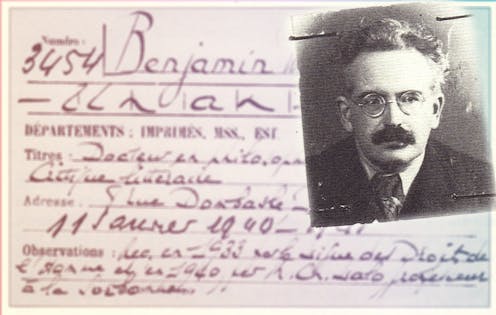the remarkably prescient work of an intellectual truth-seeker
- Written by Jamie Q Roberts, Lecturer in Politics and International Relations, University of Sydney

In our Guide to the Classics series, experts explain key works of literature.
Walter Benjamin was a German Jewish intellectual born in Berlin in 1892 to wealthy parents. He died by his own hand in September 1940 while fleeing the Nazis. Following his death, his writing was nearly forgotten until the publication in German in 1955 of an anthology of his work.
Illuminations[1], which draws together many of Benjamin’s most significant pieces, was published in English in 1968. It includes the enduring The Work of Art in the Age of Mechanical Reproduction (1935), as well as writings on translation, book collecting, and some of the authors he most admired: Kafka, Baudelaire and Proust. Illuminations also has a weighty introduction by political philosopher Hannah Arendt.

















